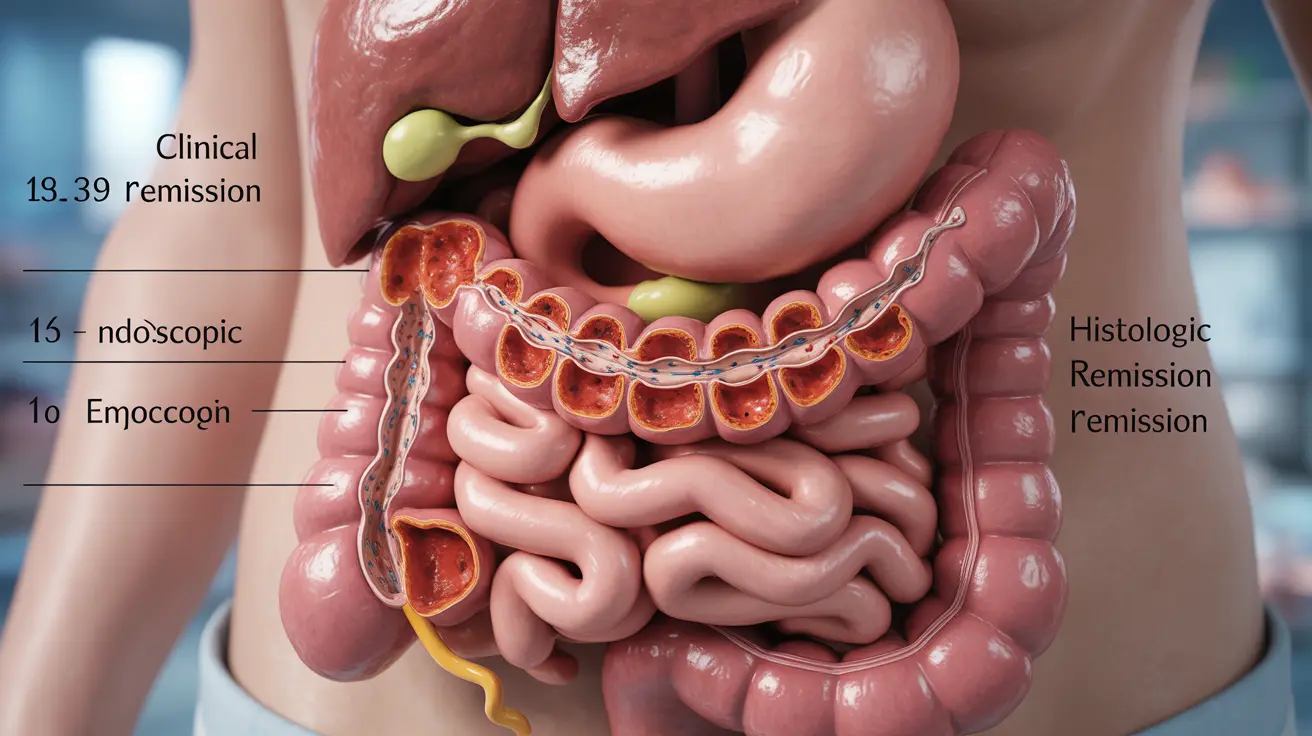For individuals living with Crohn's disease, achieving and maintaining remission is a crucial milestone in their treatment journey. Remission represents a period when the inflammation and symptoms of Crohn's disease are well-controlled, allowing patients to experience improved quality of life. Understanding the different types of remission and how to maintain them is essential for successful long-term management of this chronic condition.
This comprehensive guide explores the various aspects of Crohn's disease remission, including different types, maintenance strategies, and factors that influence how long remission may last. Whether you're newly diagnosed or have been managing Crohn's disease for years, this information will help you better understand and work toward sustained remission.
Types of Crohn's Disease Remission
There are several distinct types of remission in Crohn's disease, each measured and defined differently:
Clinical Remission
Clinical remission occurs when visible symptoms of Crohn's disease subside. Patients typically experience reduced or eliminated symptoms such as diarrhea, abdominal pain, and fatigue. However, clinical remission doesn't necessarily mean the disease is completely inactive.
Endoscopic Remission
This type of remission is confirmed through endoscopic examination, showing healing of the intestinal mucosa. Endoscopic remission is considered a more objective measure of disease control and often indicates better long-term outcomes.
Histologic Remission
Histologic remission involves the absence of microscopic inflammation in tissue samples. This deep level of healing is increasingly recognized as an important treatment goal, though it's not always achievable for all patients.
Maintaining Remission in Crohn's Disease
Several key strategies can help maintain remission once it's achieved:
Medication Adherence
Continuing prescribed medications as directed by your healthcare provider is crucial, even when feeling well. Stopping treatment prematurely often leads to disease flares.
Lifestyle Modifications
Managing stress, getting regular exercise, and maintaining good sleep habits can support sustained remission. These factors play a significant role in overall immune system function and gut health.
Dietary Considerations
While diet alone cannot cure Crohn's disease, proper nutrition plays a vital role in maintaining remission. Working with a registered dietitian can help develop an individualized eating plan that supports gut health and prevents nutritional deficiencies.
Monitoring and Prevention of Flares
Regular monitoring is essential for maintaining remission and catching potential flares early:
Regular Check-ups
Scheduled appointments with your healthcare team help track disease activity and adjust treatment plans as needed. These visits often include blood tests and other monitoring tools to assess inflammation levels.
Early Warning Signs
Learning to recognize early warning signs of a flare can help prevent full-blown episodes. These may include mild abdominal discomfort, changes in bowel habits, or unusual fatigue.
Frequently Asked Questions
What are the different types of remission in Crohn's disease and how are they diagnosed? Clinical remission is diagnosed through symptom assessment, endoscopic remission through intestinal examination, and histologic remission through tissue analysis. Each type requires different diagnostic tools and indicates various levels of disease control.
How can I maintain remission from Crohn's disease and prevent flare-ups? Maintaining remission involves medication adherence, regular medical check-ups, stress management, proper nutrition, and healthy lifestyle habits. Avoiding known triggers and maintaining open communication with your healthcare team is also crucial.
What is the difference between clinical and endoscopic remission in Crohn's disease treatment? Clinical remission refers to the absence of symptoms, while endoscopic remission shows actual healing of the intestinal lining as viewed through an endoscope. Endoscopic remission is considered a more reliable indicator of disease control.
Can diet and nutrition help manage symptoms or induce remission in Crohn's disease? While diet alone cannot induce remission, proper nutrition supports overall health and may help maintain remission. Working with healthcare providers to develop a personalized diet plan is recommended.
How long does remission typically last for Crohn's disease, and what factors influence its duration? Remission duration varies greatly among individuals and can last from months to years. Factors affecting duration include medication compliance, lifestyle choices, stress levels, and individual disease patterns. Regular monitoring and maintaining prescribed treatments help extend remission periods.




